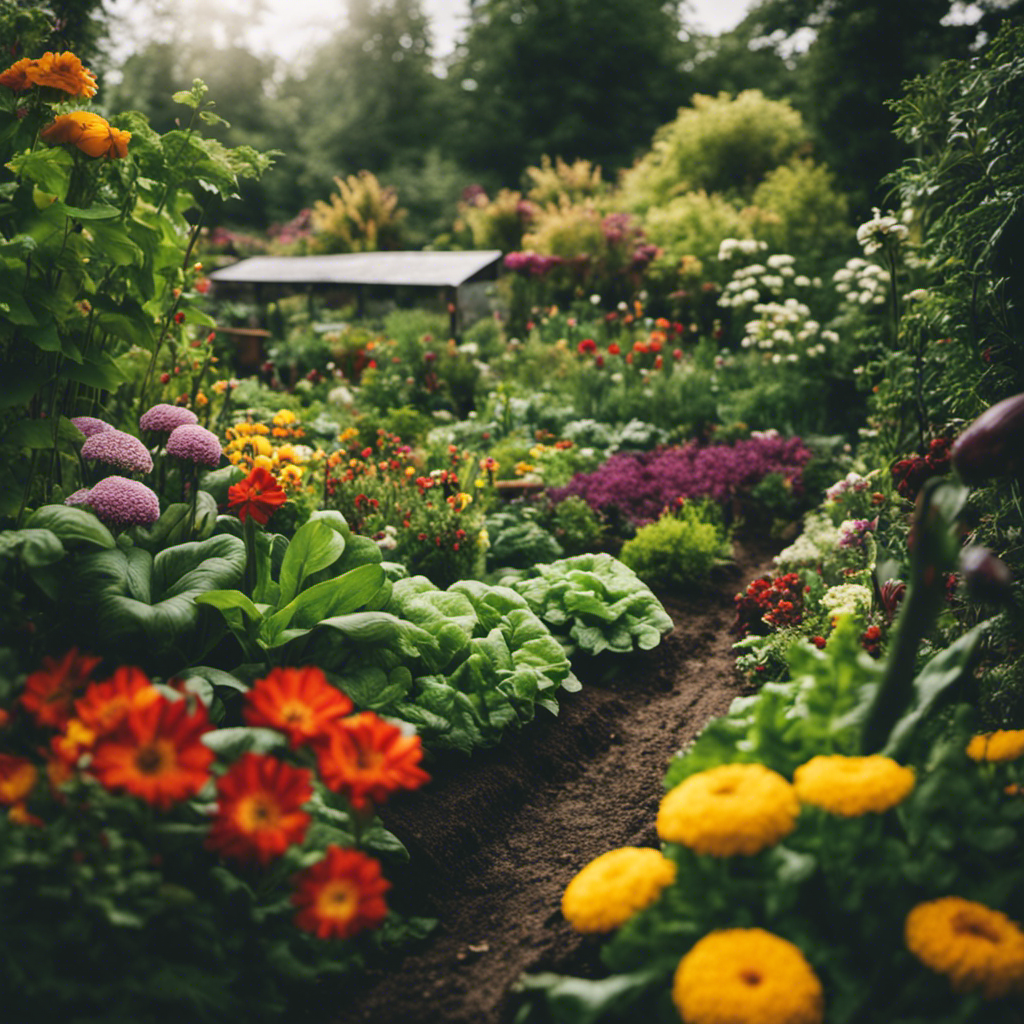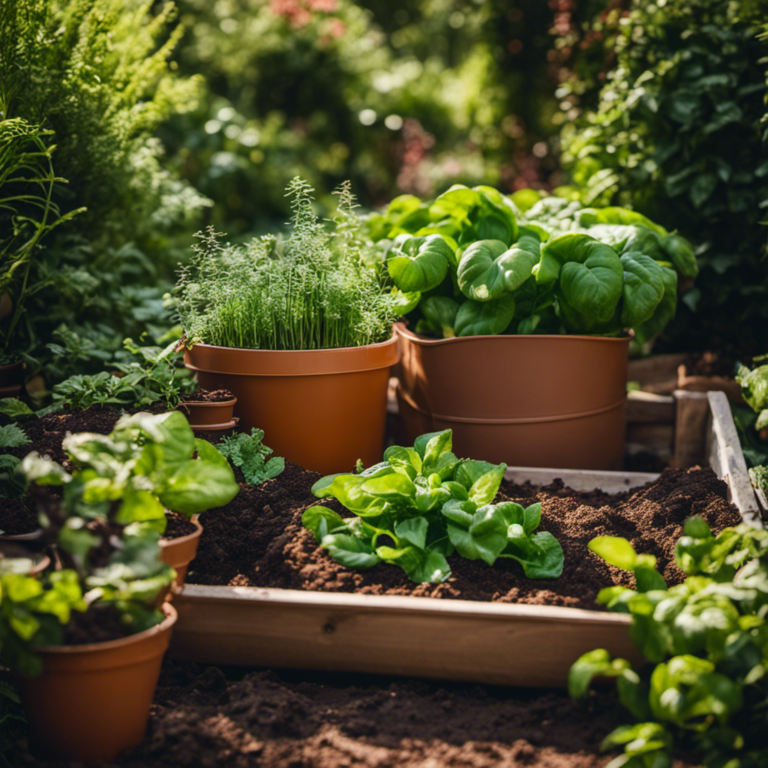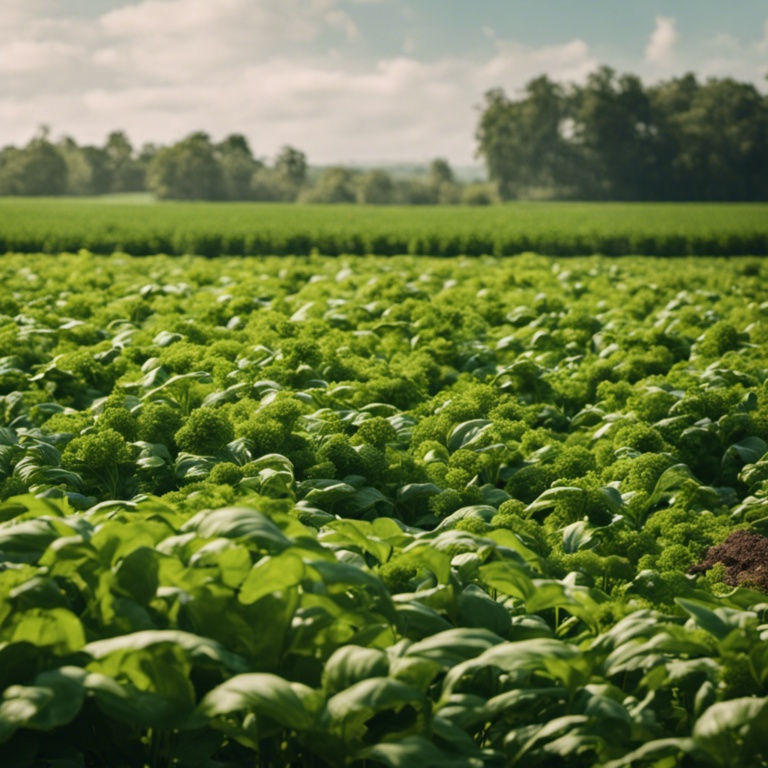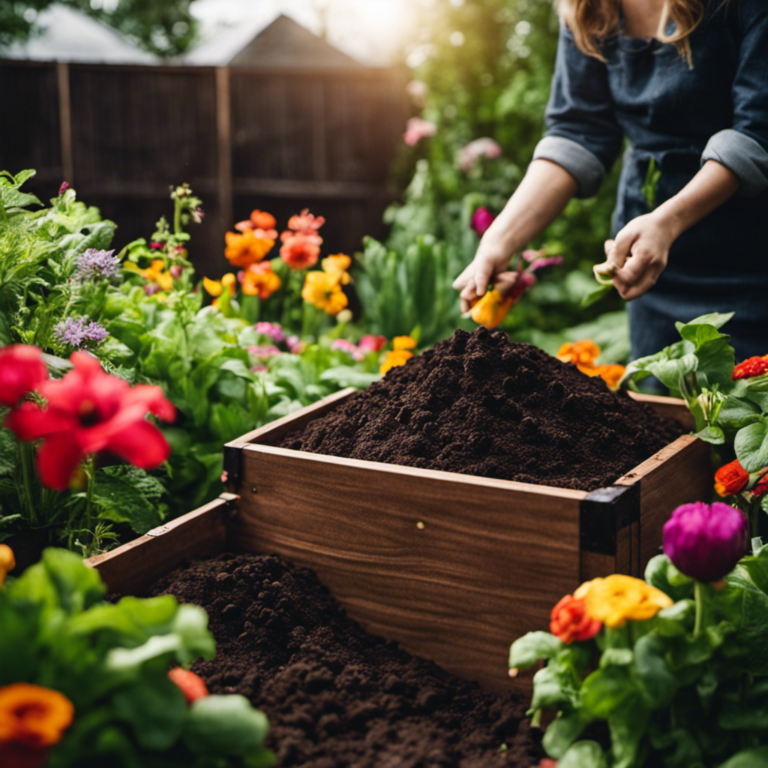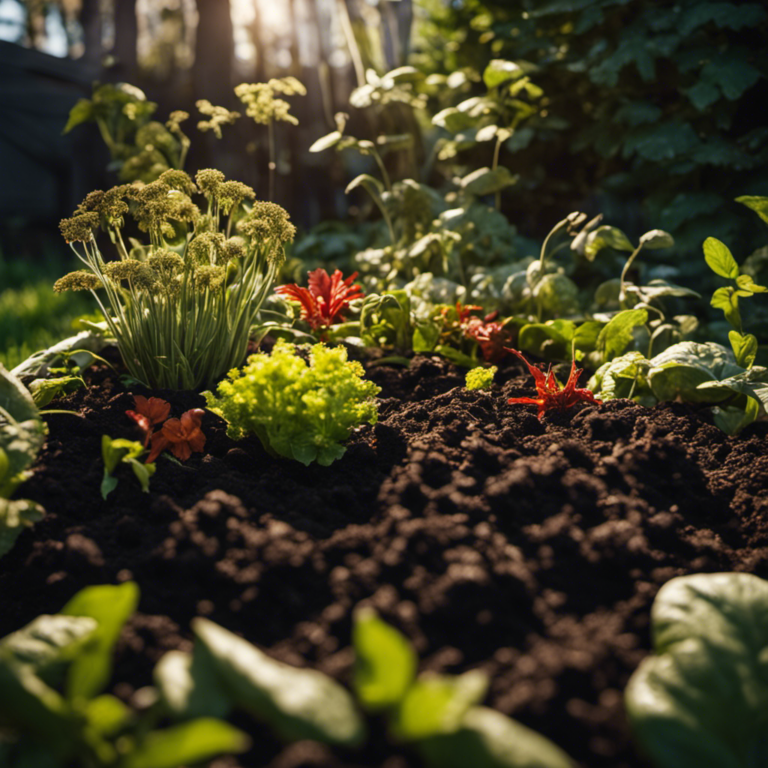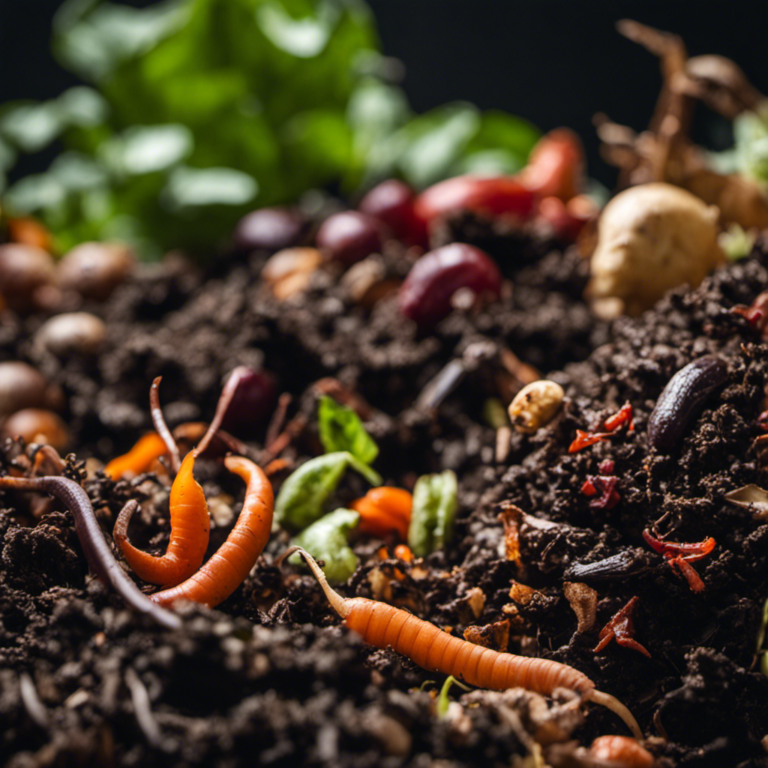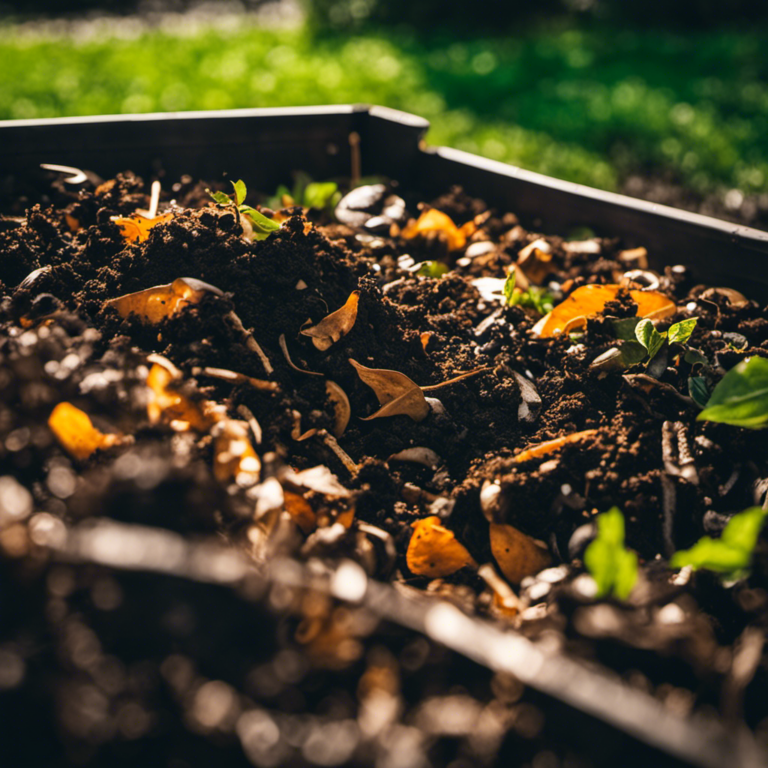Hey there, fellow gardening enthusiasts!
Are you eager to elevate your gardening skills? Well, you’re in luck because I’m about to share some unique composting tips that will help your plants thrive.
Forget about the traditional methods, because we’re diving into unconventional tricks that will take your garden to the next level.
So grab your gardening gloves and get ready to explore the world of composting like never before.
Your garden will thank you, and so will our beloved planet Earth!
Key Takeaways
Uncovering Unique Composting Tips for Eco-Friendly Gardening
When it comes to adopting greener gardening practices, it’s important to explore unconventional composting techniques and DIY tools that make use of kitchen waste. By implementing these practical and informative practices, we can establish a sustainable cycle of nourishment for our plants and contribute to a healthier planet.
Instead of relying solely on traditional composting methods, why not try some innovative approaches? For example, vermiculture, or worm composting, is an effective and space-saving way to break down organic matter. By introducing red worms into a designated container, you can create nutrient-rich compost faster than with regular composting methods.
Another unconventional technique is bokashi composting, which involves fermenting food waste using beneficial microorganisms. This process not only reduces odors but also produces a nutrient-dense liquid fertilizer that can be used to nourish your plants.
In addition to these techniques, you can also repurpose common household items to create DIY composting tools. For instance, a sturdy plastic container with drilled holes can be transformed into a compost bin, allowing for proper aeration and decomposition. Similarly, using a wooden pallet as a composting platform allows for easy turning and mixing of organic materials.
By thinking outside the box and exploring these unique composting tips, you can elevate your gardening practices to a more sustainable level. Let’s nurture our soil and environment as we cultivate a future where every garden thrives, reflecting our commitment to a greener world.
Remember, the key to successful composting lies in finding the right balance of carbon-rich and nitrogen-rich materials. Experiment with different techniques and materials to discover what works best for your garden. As you embark on this composting journey, you’ll not only reduce waste but also create a nourishing environment for your plants to flourish.
So, why not give these unconventional composting methods a try? Start small, observe the changes, and watch as your garden thrives with the help of these eco-friendly practices.
As gardening enthusiasts, it’s our responsibility to embrace sustainable solutions and make a positive impact on the environment. By adopting these unique composting techniques, we can unlock the full potential of our gardens while minimizing our ecological footprint.
In the words of renowned environmentalist Wendell Berry, "The soil is the great connector of lives, the source and destination of all." Let us strive to nourish our soil and, in turn, nourish our planet for generations to come.
Quick Composting Techniques
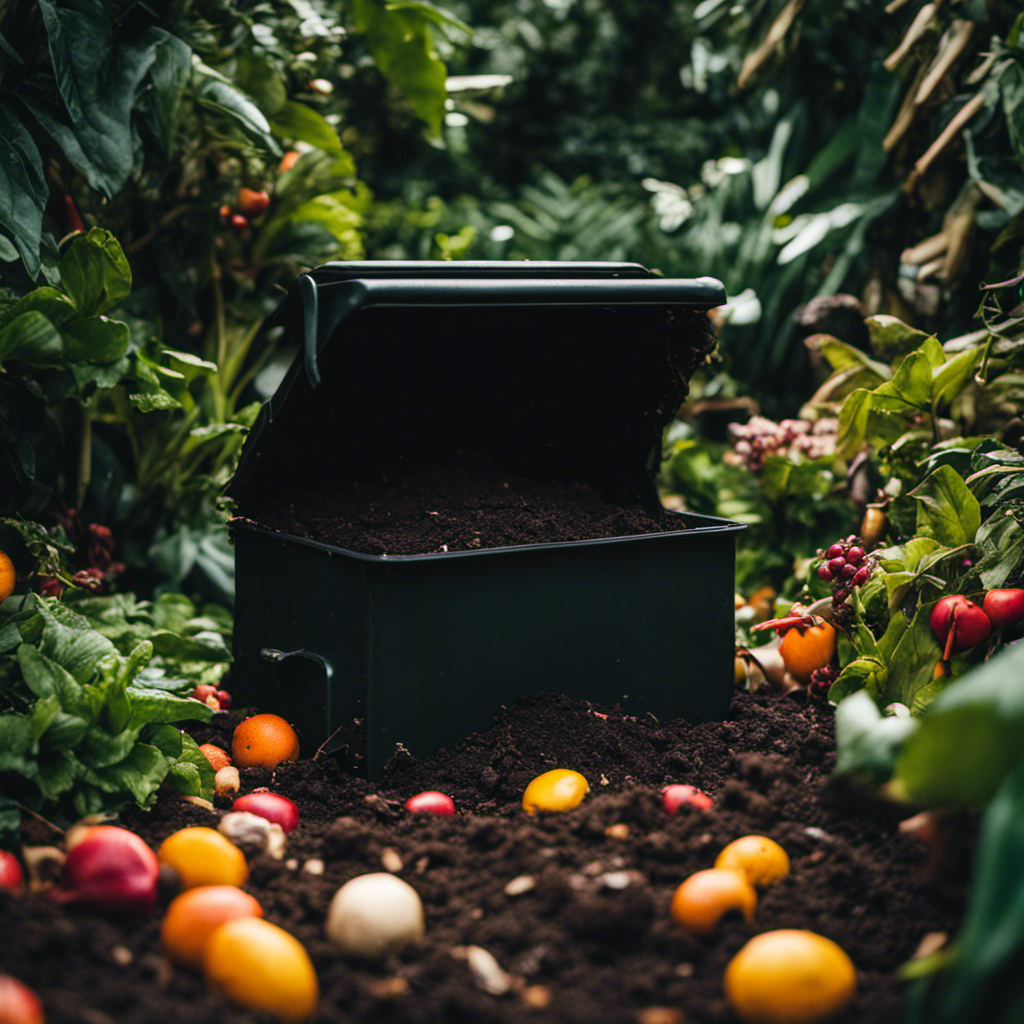
–v 5.2 –ar 16:9
What are some quick techniques for composting that I can use in my garden?
When it comes to composting, there are a few methods that can help speed up the process. One such technique is aerobic composting, which involves supplying oxygen to the compost pile. This can be done by regularly turning the pile, allowing air to circulate and aiding in the decomposition of organic matter.
Another quick technique is vermicomposting, which utilizes worms to break down organic waste. By creating a suitable environment for worms, such as a designated vermicomposting bin, you can produce nutrient-rich compost in less time.
To start vermicomposting, gather a container with drainage holes, bedding material like shredded newspaper or cardboard, and red worms. Place the bedding material in the container, slightly moisten it, and add the worms. Feed them with kitchen scraps like fruit and vegetable peels, coffee grounds, and eggshells. Avoid adding meat, dairy, or oily foods, as these can attract pests. Cover the container to maintain moisture and darkness, and occasionally stir the contents to aid in decomposition.
DIY Composting Tools
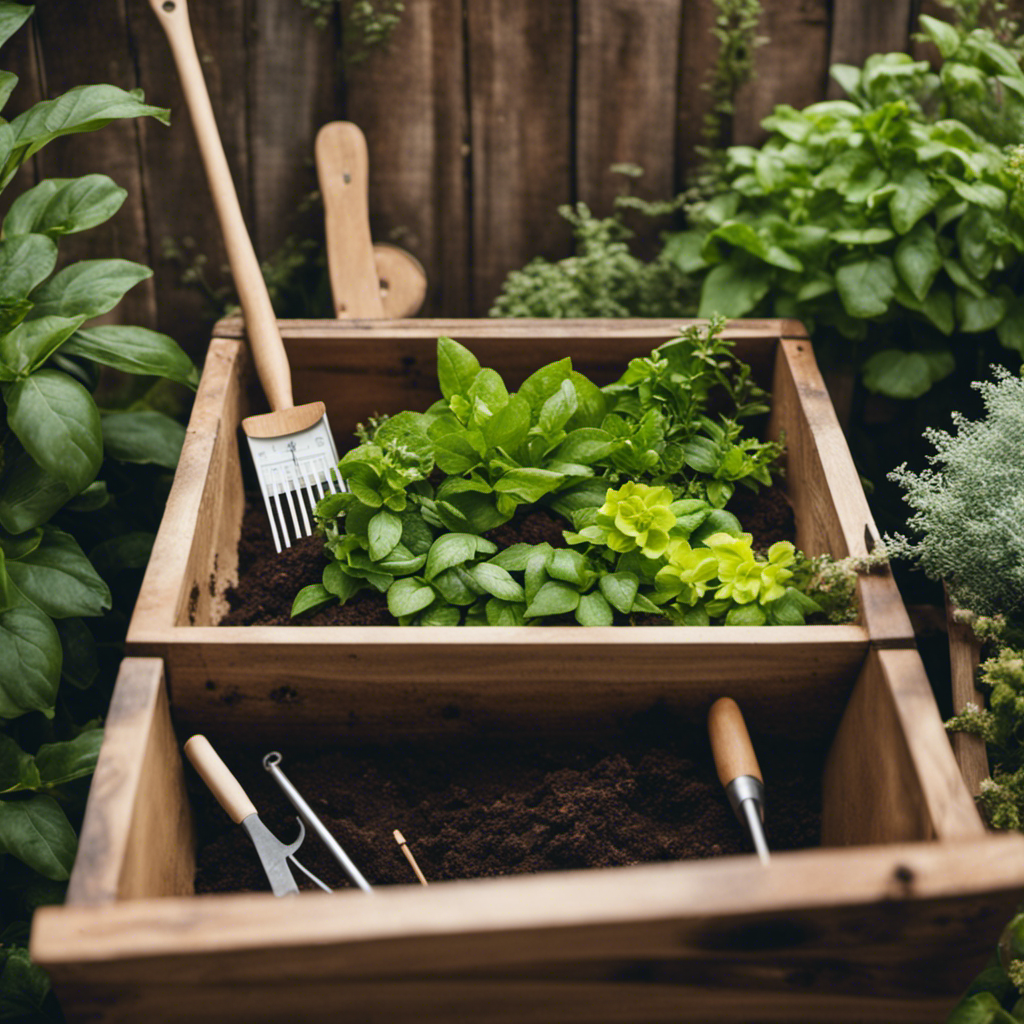
Using DIY composting tools in my garden has been a game-changer for my eco-friendly gardening practices. One of the most effective ways to repurpose materials and create your own compost containers is by using upcycled materials. You can easily make these containers from items like old wooden pallets, plastic bins, or repurposed trash cans. By utilizing these upcycled containers, not only are you reducing waste, but you’re also saving money that would have been spent on purchasing new composting bins.
Composting in small spaces can pose a challenge, but with the right DIY tools, it becomes entirely feasible. One option is to try vermicomposting, which involves using a worm bin to break down food scraps and organic materials. This method is perfect for composting indoors or in tight spaces such as balconies or small gardens.
Another fantastic DIY tool for small-space composting is a compost tumbler. This container allows for easy turning and aeration of the compost, ultimately speeding up the decomposition process. Its compact size makes it convenient to place in a corner of your garden or even on a patio.
Composting With Kitchen Waste
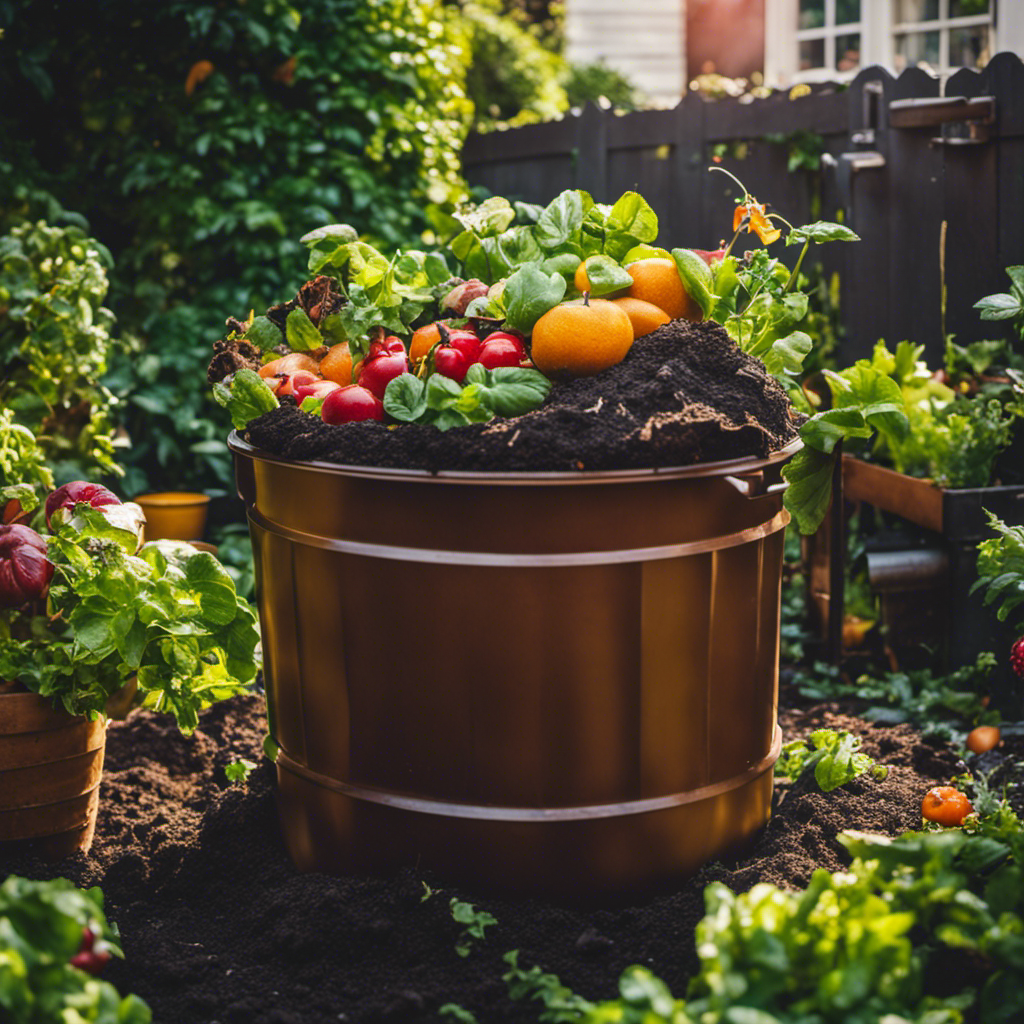
Composting With Kitchen Waste
When it comes to composting in my garden, one of the most efficient ways to utilize kitchen waste is by incorporating it into my DIY composting tools. This not only helps reduce waste but also provides numerous benefits for my plants.
One method I use is vermicomposting, which involves using worms to break down organic matter. Vermicomposting has several advantages, including faster decomposition, increased nutrient availability, and improved soil structure. By adding kitchen waste such as fruit and vegetable scraps, coffee grounds, and eggshells to my vermicomposting bin, I create a rich and nutrient-dense compost that my plants love.
Coffee grounds, in particular, are a great addition to the compost pile. They contain nitrogen, phosphorus, and potassium, which are essential nutrients for plant growth. Coffee grounds also help improve soil drainage and water retention.
To incorporate kitchen waste into my DIY composting tools, I make sure to chop or shred larger items, such as fruit peels or vegetable scraps, to speed up decomposition. I also layer the waste with other materials, such as leaves or straw, to maintain a balance of carbon and nitrogen.
Innovative Composting Methods
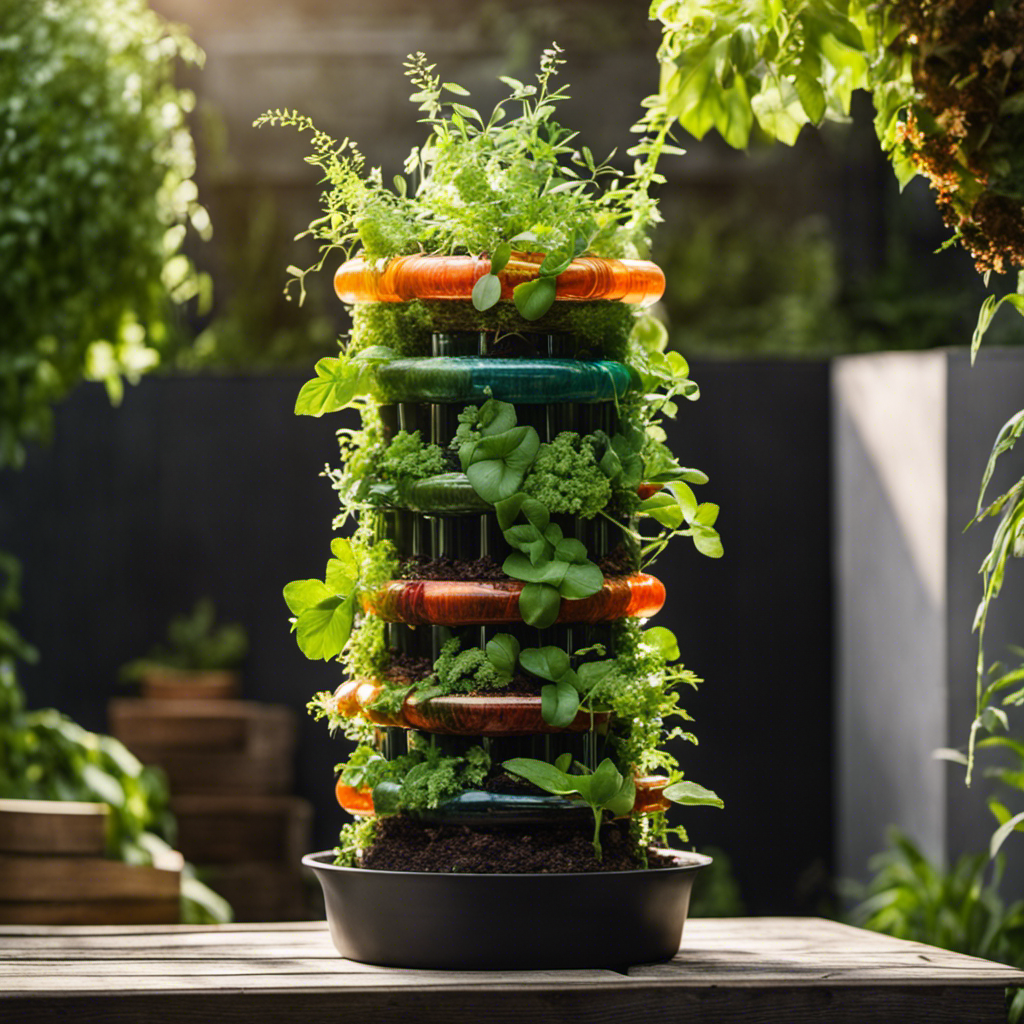
Innovative Methods for Small-Space Composting
To improve my eco-friendly gardening practices, I have come across some creative ways to elevate my composting game. Composting is an excellent method for reducing waste and enriching garden soil, but it can be challenging in limited spaces. However, with a few innovative techniques, small-space composting is still achievable.
One effective method is vertical composting. By using a tall container, like a stackable bin or a DIY compost tower, I can make the most of vertical space. This allows me to compost a larger amount of materials in a smaller area.
Another unconventional approach is worm composting. Worms are highly efficient at breaking down organic matter, and they can thrive in compact containers, such as a worm bin. Not only does this save space, but it also produces nutrient-rich worm castings that benefit my plants.
Let’s take a look at a table showcasing some innovative composting methods:
| Method | Benefits |
|---|---|
| Vertical composting | Maximizes use of vertical space |
| Worm composting | Suitable for small containers, produces nutrient-rich castings |
| Bokashi composting | Ferments organic matter quickly, odor-free |
Lastly, bokashi composting is another technique worth exploring. It involves fermenting organic matter using a special mix of beneficial microorganisms. This method is ideal for small spaces as it can be done in an airtight container and produces compost quickly, without any unpleasant odors.
Troubleshooting Compost Issues
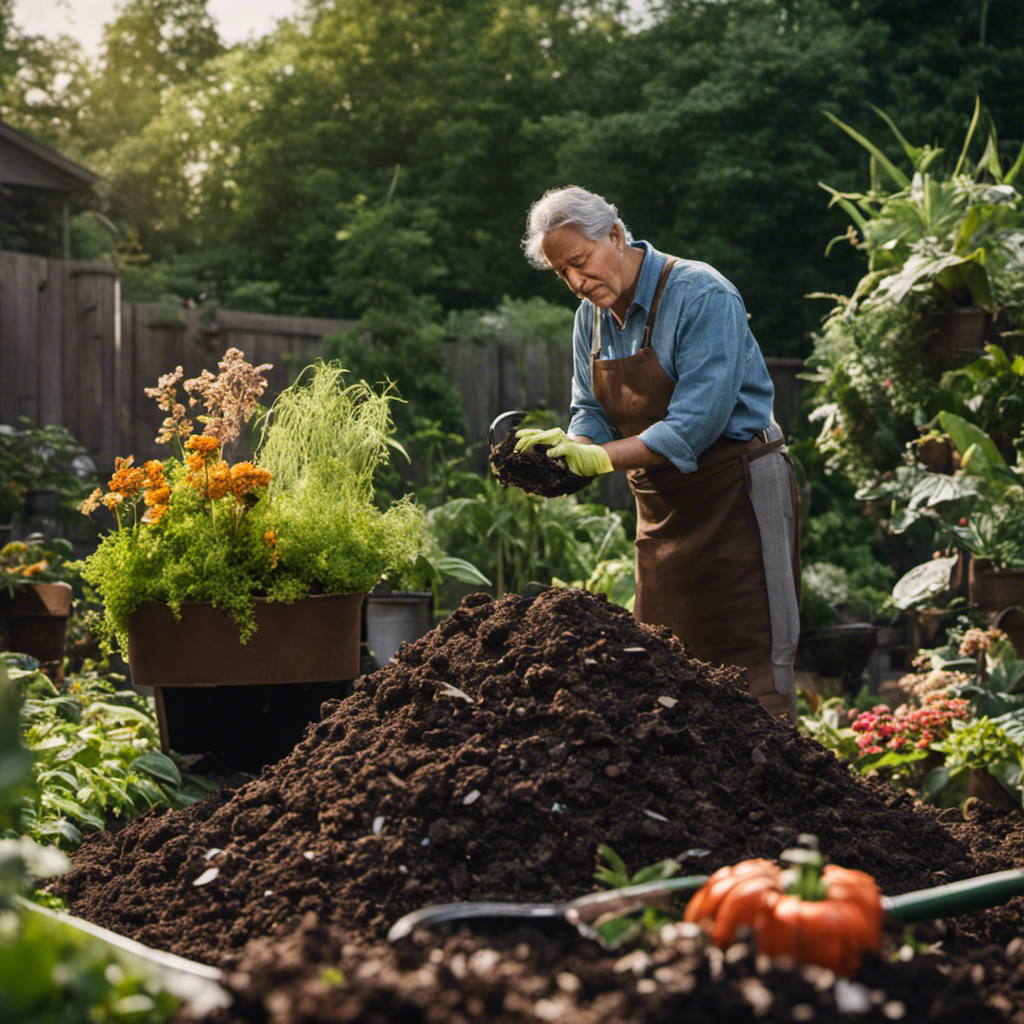
Having trouble with your compost? Let’s address common composting issues head-on.
One of the most important factors in successful composting is maintaining your compost bin properly. Regularly turning the compost pile helps to aerate it and speed up the decomposition process. If your compost isn’t heating up, it could be due to a lack of nitrogen or moisture. To increase nitrogen levels, add green materials like grass clippings or kitchen scraps. If the pile is too dry, give it a good watering. On the other hand, if your compost smells unpleasant, it might be too wet or lack proper airflow. In that case, add brown materials such as dry leaves or shredded paper to absorb excess moisture and make sure the compost isn’t too compacted.
For those composting in small spaces, it’s important to choose a composting method that suits your needs. Consider using a worm bin or a bokashi system, which are compact and odor-free options. These methods allow for indoor or tight space composting, making it convenient for urban dwellers. Alternatively, you can also try compost tumblers or composting bags that are easy to store and take up less space.
Conclusion
Uncovering Unique Composting Tips for Eco-Friendly Gardening
When it comes to adopting greener gardening practices, it’s essential to explore unconventional composting techniques and DIY tools that utilize kitchen waste.
By embracing these practical and informative practices, we can establish a sustainable cycle of nourishment for our plants and contribute to a healthier planet.
Let’s remember to nurture both our soil and our environment as we cultivate a future where every garden thrives and reflects our commitment to a greener world.
